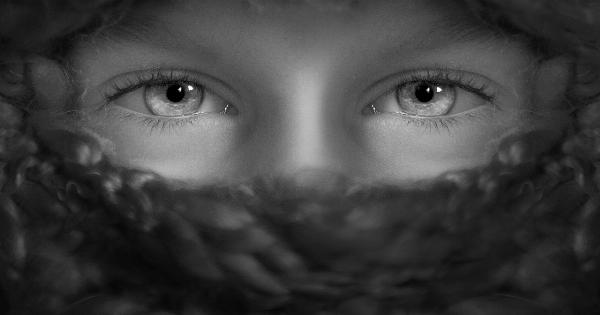Our vision is one of the most important senses we have, and losing it can greatly affect our daily lives.
Vision loss can happen to anyone at any age, and it’s essential to know the signs and symptoms to watch out for to prevent it from becoming more severe. In this article, we’ll discuss the top signs of vision loss and what you can do about it.
Blurred Vision
If you’re experiencing blurred vision, it’s a possible indicator of an underlying condition or disease that’s affecting your eyes.
It could be a sign of astigmatism, nearsightedness, or farsightedness, but in some cases, it can also be a symptom of age-related macular degeneration (AMD). If you have blurred vision, you need to see an eye doctor for proper diagnosis and treatment.
Double Vision
Double vision occurs when you see two images of an object instead of one, and it’s a serious symptom of vision loss.
It can be caused by a variety of factors, including a stroke, an eye disease like cataracts or macular degeneration, or a problem with the muscles controlling eye movement. If you’re experiencing double vision, seek medical attention immediately.
Flashes of Light
If you’re seeing flashes of light, it could be a sign of a retinal tear or detachment. Flashes of light are bright, sudden sensations of light that can happen in one or both eyes.
These flashes can happen periodically or continuously, and they’re often accompanied by floaters (small specks or spots that seem to float in your vision). If you’re experiencing flashes of light, you need to see an eye doctor as soon as possible.
Loss of Peripheral Vision
Peripheral vision allows us to see objects and movement outside of our central visual field.
If you’re experiencing a loss of peripheral vision, it could be a sign of glaucoma, a condition that damages the optic nerve and can lead to blindness if left untreated. Other possible causes of a loss of peripheral vision include diabetes, stroke, and brain tumors. If you’re experiencing a loss of peripheral vision, schedule an appointment with an eye doctor right away.
Halos Around Lights
If you’re seeing halos around lights, it could be a sign of cataracts, a condition that clouds the lenses of your eyes and leads to blurry or hazy vision.
Halos around lights can also be a symptom of corneal edema, a condition that causes swelling in the cornea, or keratoconus, a condition that causes the cornea to bulge and become cone-shaped. If you’re experiencing halos around lights, see an eye doctor for diagnosis and treatment.
Decreased Color Vision
Difficulty distinguishing colors can be a sign of vision loss. In some people, color vision changes or becomes less vibrant as they age. However, if you experience a sudden loss of color vision, see an eye doctor immediately.
Sudden loss of color vision can be a symptom of optic neuritis, a condition that causes inflammation of the optic nerve, which can lead to vision loss if left untreated.
Dry or Itchy Eyes
Dry or itchy eyes can be a common symptom of various eye conditions, including blepharitis, an inflammation of the eyelids; allergies; and dry eye syndrome, a condition in which the eyes don’t produce enough lubrication.
If you’re experiencing dry or itchy eyes, you can try over-the-counter eye drops or make lifestyle changes, such as taking frequent screen breaks or using a humidifier in your home. However, if the symptoms continue or worsen, see an eye doctor for proper diagnosis and treatment.
Difficulty Seeing at Night
If you’re having difficulty seeing at night, it could be a sign of night blindness, a condition in which your eyes have trouble adjusting to low light conditions.
Night blindness can be caused by a variety of factors, including cataracts, glaucoma, and vitamin A deficiency. If you’re experiencing difficulty seeing at night, talk to your eye doctor for proper diagnosis and treatment.
Sensitivity to Light
If your eyes are sensitive to light, it could be a sign of an underlying condition, such as corneal abrasions, migraines, or photokeratitis, a condition that causes temporary damage to the cornea due to overexposure to UV rays.
If you’re experiencing sensitivity to light, try reducing your exposure to bright light sources. If the condition persists, see an eye doctor for diagnosis and treatment.
Loss of Central Vision
If you’re experiencing a loss of central vision, it could be a sign of age-related macular degeneration (AMD), a condition in which the macula, the part of the retina responsible for central vision, starts to deteriorate.
Other possible causes of a loss of central vision include cataracts, diabetic retinopathy, and retinal detachment. If you’re experiencing a loss of central vision, seek medical attention immediately.
Conclusion
Vision loss can be a scary experience, but it’s essential to know the signs and symptoms to watch out for to prevent it from becoming more severe.
If you’re experiencing any of the symptoms mentioned above, schedule an appointment with your eye doctor as soon as possible. Early diagnosis and treatment are crucial in preventing permanent vision loss.





























